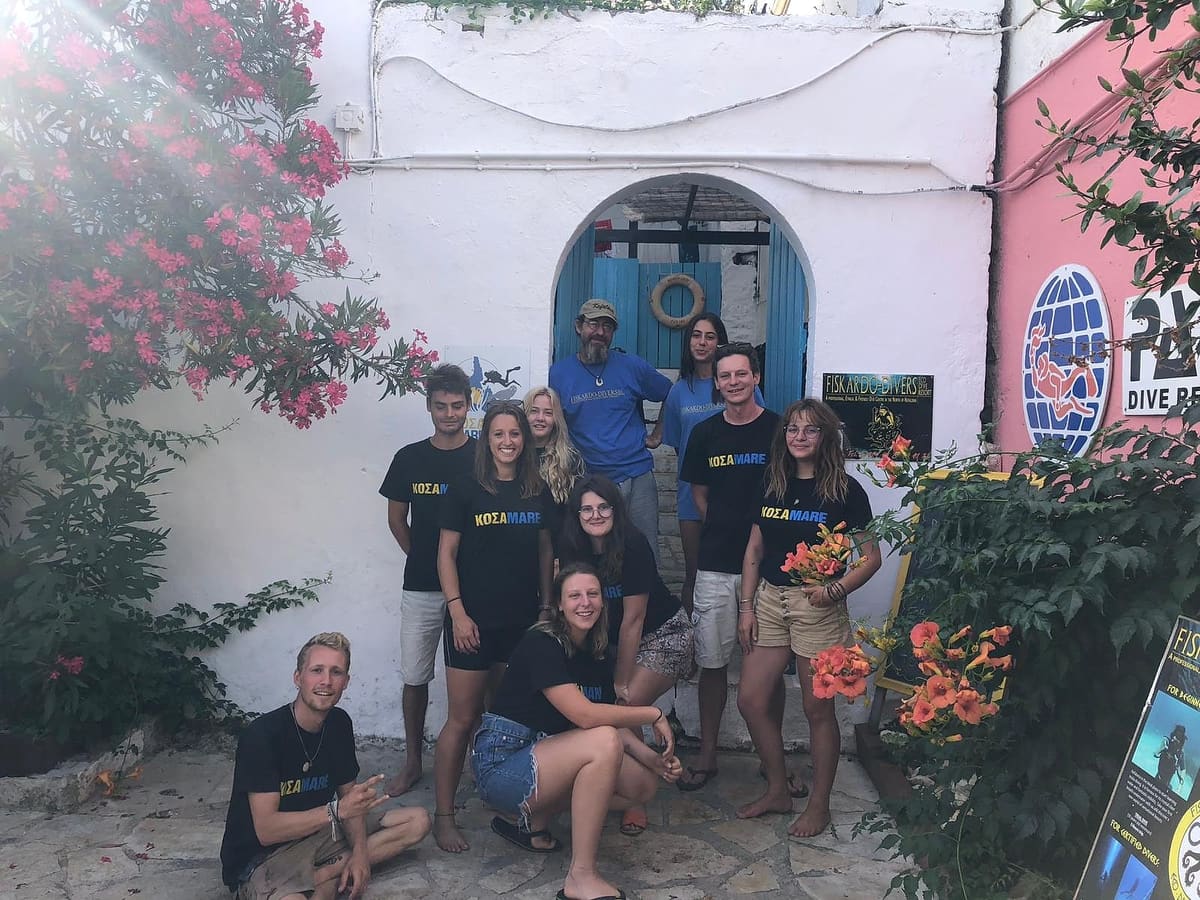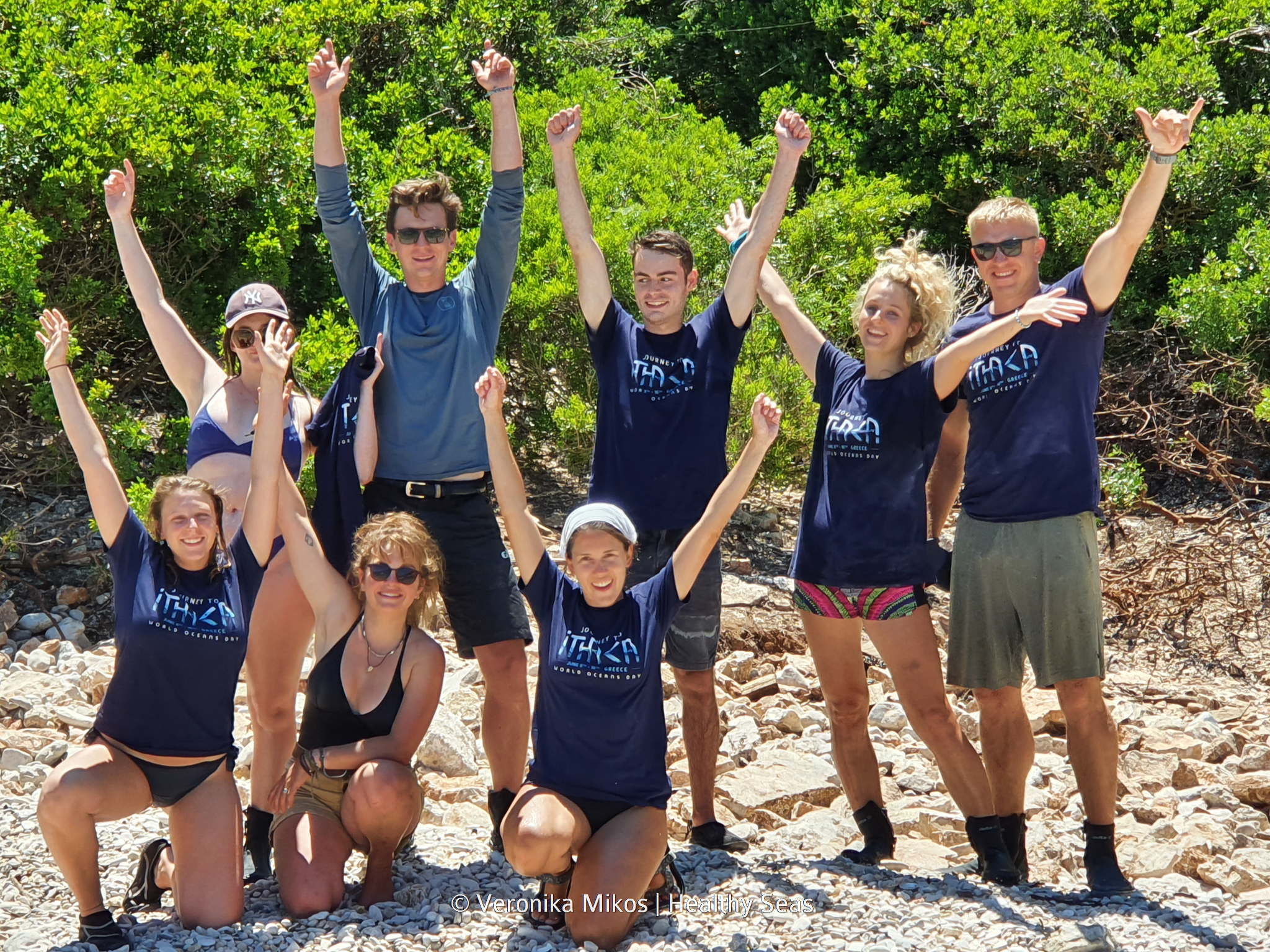Scientific diving programme
The project
Posidonia oceanica is one of the most important ecosystems in the Mediterranean. It is protected under the EU Birds and Habitats Directive but still faces major threats, including significant impacts from recreational boating. Our goal is to monitor seagrass meadows in the north of Kefalonia through aerial photography and underwater surveys, in order to ascertain priority areas
for an permanent eco-moorings and regeneration project. The programme consists of gathering data on Posidonia oceanica density and percentage coverage in 4 differents bays. We aim to estimate the fish biodiversity in the different bays where we are studying the health of the Posidonia through underwater surveys.

Fish survey
During the survey our goal is to assess local abundance through counting and the local fish biomass by taking into consideration the size of the different fish during the survey.

Posidonia monitoring
The programme consists into gathering datas underwater on the density of seagrass meadows in four different bays using quadrats and percentage of coverage of alive Posidonia in the same bays using transects as well as setting up the upper and lower limit of the different seagrass meadows.

Join the project!
Your role
During 2 weeks, you will take part of a programme aiming to understand and collect data to protect better this species and its inhabitants. You will gain a PADI certification in scientific diving techniques whilst contributing to conservation efforts.
What you will learn from this programme:
● Discover and understand the structure and the functionment of Posidonia oceanica
ecosystem.
● Identification, observation and monitoring of Mediterranean fish.
● Taking part on a scientific study that will support a protecting programme including
the implementation of permanent eco-moorings and seagrass restoration around the
Northern cape of Kefalonia.


Requirements
To participate to this 2 weeks programme, the participants should meet some requirements:
- Being over 18 years old.
- Having at least the first degree of diving certification (PADI Open Water, CMAS 1 Star or equivalent) with 10 dives logged.*
- Being comfortable with underwater skills.
- Having an health certification for diving.
- Speaking english.
- Comfortable with communal living, enthusiastic and open-minded!
*This certification can be acquired in Fiskardo before the programme. (Contact us for more information)
Projects location :
FISKARDO – KEFALONIA
Fiskardo is a village in the North of Kefalonia with a small and diminishing fishing fleet, and a growing tourism industry. It was mentioned by the 5th century Greek historian, Herododus, as part of the ancient town of Panormos. In 2005 a plaque was discovered near the harbour from the people of Athens, thanking the people of Panormos for allowing them to hunt in the area. There has long been a dispute between Kefalonia and Ithica over the location of the kingdom of Odysseus, the hero of Homer’s epic, the Odyssey. Over the course of history, the island of Kefalonia has passed hands between the Roman, Byzantine, Ottoman, Frankish and British empires. Archaeological sites around Fiskardo are a legacy to these empires, with the roman cemetery and old venetian lighthouse acting as two excellent examples.
The strait of Ithaca was a trading route used regularly since antiquity, and the discovery of ancient amphora and shipwrecks can trace the routes of ships from all over the Eastern Mediterranean. During the second world war, the island was occupied by the axis powers and the war ended on Kefalonia with the massacre of the Italian Acqui division by German forces following the Italian armistice. The horrific event provided the historical background to the 1994 novel by Pertini, Captain Corelli’s Mandolin.


What’s Included
The cost includes a transfert from the airport/ ferry port to the accomodation (on beginning and ending date of the programme only) and all the activities during the programme duration.
The cost does not include travel costs, food or personal expenses. In Fiskardo you will find several restaurants and two supermarkets. It’s a small village so everything is accessible by foot.
Concerning the accommodation, we will provide sheets and pillows but you will have to take your own sleeping bag or duvet (knowing that the weather is pretty comfortable on the island).
Accomodation
The accocomodation would be either a shared volunteer’s room or tents in the garden if you prefer.
The accodomodation is located in the center of Fiskardo.
The kitchen and the bathroom are shared with the rest of the team of Fiskardo divers. You’ll have to be carefull maintaining the place in a good statement and respecting the others.
Water on the island is a rare ressource. The accomodation has a citern in the garden, but during the season, having the citern to be refilled is sometimes a challenge that can take few days. So we ask the habitants of the house to be carefull with their water consumption and to keep an eye on the level of the water in the citerna.

